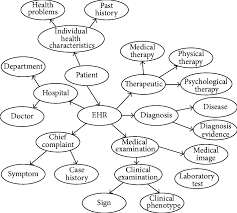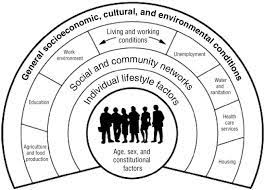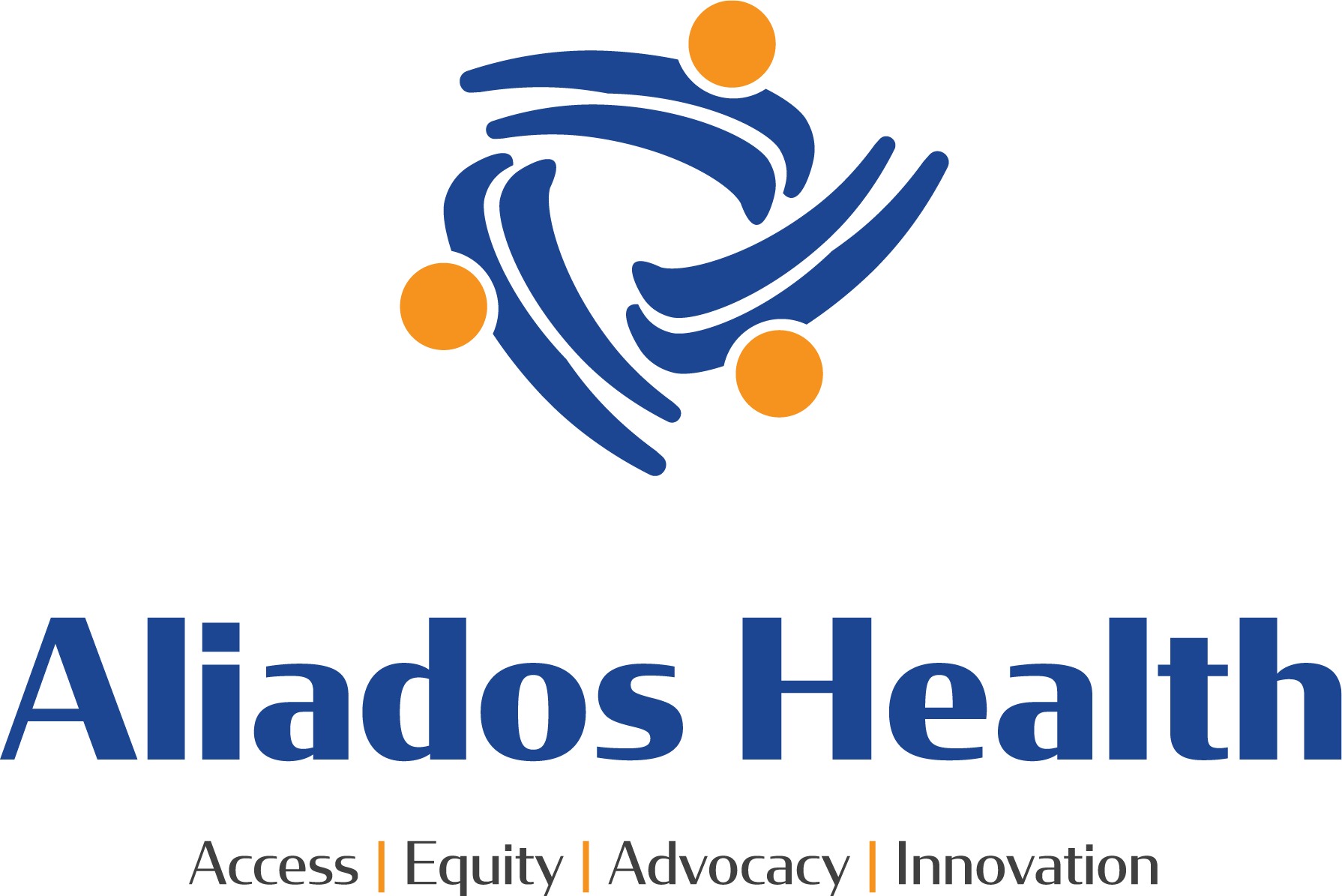Why the HRSA Health Center Controlled Network (HCCN)?
The Aliados Health Health Center Controlled Network (HCCN) operates as a cooperative agreement with the U.S. Health Resources and Services Administration (HRSA) to support health centers in leveraging Health Information Technology (HIT) and data analytics to deliver high-quality, culturally competent, equitable, and comprehensive primary health care. The Aliados Health HCCN supports health centers in three target areas that were prescribed by HRSA and that align with current initiatives that the health centers have focus.
- Clinical Quality
- Patient-Centered Care
- Provider and Staff Well-Being
PROGRAM
What We Do
Aliados Health convenes peer groups for Medical Directors, Electronic Health Records users, Quality Improvement and Data Leads to support the needs of our participating health centers and to offer a platform to share best practices and work on resolutions to issues and to provide aggregated data dashboards for the health centers.
Aliados Health works with the health centers to collaborate and help facilitate new services and contracts for Health Information Technology, Analytics Platforms, and Health Information Exchange.
Aliados Health provides technical assistance, trainings and toolkits on current initiatives, i.e. use of analytics reports, roll out of Evidence Based Care tools (guidelines, protocols and clinical decision support tools), and topic specific sessions including areas within SQL Coding, Health Information Technology and Health Coaching.
Who We Serve
We serve sixteen participating health centers and over 266,311 health center patients from thirteen Northern California counties:
Marin and San Francisco Counties: Marin Community Clinics, Marin City Health and Wellness, and Ritter Center
Sonoma County: Alexander Valley Healthcare, Petaluma Health Center, Santa Rosa Community Health, and West County Health Centers
Napa and Solano Counties: OLE Health
Yolo County: CommuniCare Health Centers and Winters Healthcare Foundation
Mendocino County: Anderson Valley Health Center and Long Valley Health Center
Placer, Sierra and Nevada Counties: Western Sierra Medical Clinic
Santa Clara County: Indian Health Center of Santa Clara Valley
Shasta County: Shasta Community Health Center
Siskiyou County: Shasta Cascade Health Center
Funders
This project is supported by the Health Resources and Services Administration (HRSA) of the U.S. Department of Health and Human Services (HHS) under grant number U86CS45894, Health Center Controlled Networks, for $665,817 and grant number HQCCS41871, for $162,500. This information or content and conclusions are those of the author and should not be construed as the official position or policy of, nor should any endorsements be inferred by HRSA, HHS or the U.S. Government.”
Project Timeline
August 1, 2022 – July 31, 2023 (H2QCS30258)
May 1, 2021 – April 30, 2023 (HQCCS41871)
MEASURES & GUIDELINES
Objectives 1,7,8,10: Digital Health IT Tools:
Objective 1: Patient Engagement
- Patient Engagement Dashboard
- Support health center in communication about patient portal
- Outreach Texting
Objective 7: Leveraging Digital Health Tools
- Transformation Initiative Technical Assistance
- Learning Management System
- Digital Health Tool Workforce Training
Objective 8: Health IT Usability and Adoption
- Attend six Digital Tool Peer Group Sessions
- Virtual Care Promising Practices and Pilots
- IT and Informatics Staff Train the Trainer Support
Objective 10: Improving Digital Health Tools
- eCW User Group Participation (eCW sites only)
- Epic Transition Peer Group Participation
- CA PCA Alternative Payment Method Workgroup
Objectives 2 & 5: Interoperability and Cybersecurity:
Objective 2: Patient Privacy and Cybersecurity
- Cybersecurity Workgroup Participation
- Cybersecurity toolkit
- Cybersecurity Consultant Engagement
- Cybersecurity Preparedness
Objective 5: Interoperable Data Exchange and Integration
- Interoperability Training Participation
- Interoperability Steering Committee Participation
- HIE & CIE
Objectives 3 & 9: Health Equity/SDOH:
Objective 3: Social Risk Factor Intervention
- SDOH Dashboard
- Aliados Health SDOH Screening Workgroup Participation
Objective 9: Health Equity
- Health Equity Leadership Council Participation
- Tech Navigator Curriculum & Training
- Health Equity Dashboard
Objectives 4 & 6: ENHANCED DATA
Objective 4: Disaggregated Patient-Level Data
- UDS+ Preparation and FHIR Interface Development
- EHR FHIR Data Exploration
Objective 6: Data Utilization
- Adopt use of a validated risk scoring index
- DSIC & Data Peer Groups Participation
- Annual Relevant Analytics Training Participation
ARP Funded Activities:
- COVID-19 Vaccination Capacity
- Maintaining & Increasing Capacity
- Infastructure
RESOURCES AND COMPANION DOCUMENTS
Health IT

If you need a password for the locked content please contact us.
EHR/IT Trainer Support
Patient Portal
- Aliados Health QI Chat Room Episode 17: Lessons from Patient Portals
- Lessons from Patient Portals Promising Practice
 COVID-19 Patient Portal Education Files
COVID-19 Patient Portal Education Files Patient Portal TA Resources
Patient Portal TA Resources- Patient Portal Trainer Toolkit
Patient Engagement
- Patient Engagement Through Texting Promising Practice
- Test Flight: Bidirectional Patient Texting-Live
- Test Flight: Bidirectional Patient Texting-Logic Based
- NextGen Contactless Check In Demo’s
- Test Flight: Leveraging Multi-Media Patient Engagement During Covid Pilot-video
- Test Flight:Leveraging Multi-Media Patient Engagement During Covid Pilot-write up
- HIT Office Hour Virtual Patient Screening Tool Demos
- Remote Patient Monitoring HIT Perspective Document
- Remote Patient Monitoring HIT Perspective Presentations
- Remote Patient Monitoring Resources
- Remote Patient Monitoring Decision Matrix-Devices
- Remote Patient Monitoring Decision Matrix-Vendors
- Test Flight: Putting a Cuff on Hypertension
- Test Flight: Patient Information on FHIR
- Techquity and the Digital Divide
Telehealth
- Specialty Telehealth HIT Perspective Document
- Specialty Telehealth HIT Perspective Presentations
- eCW Telehealth Quick Launch Guide
- COVID-19 Telehealth Billing Webinar with the California Telehealth Resource Center
- Increasing Telehealth Engagement Promising Practice
- Shared Specialty Telehealth Model Promising Practice
- Test Flight: Use of E-Consults to Address Specialty Care Shortage
- WCHC Virtual Clinic Promising Practice
 Virtual Care Learning Series Resource Library
Virtual Care Learning Series Resource Library- Telehealth Implementation Best Practices Checklist
Care Team Burden
- Scribe/Voice Recognition HIT Perspective Document
- Scribe/Voice Recognition HIT Perspective Presentations
- NG Mobile Demo
- Test Flight: Scribe Solutions to address Provider Burden
- Assessing the Care Team Tech Experience Toolkit
Interoperability
- Interoperability Trainings
 Information Blocking Toolkit
Information Blocking Toolkit- NextGen Interoperability Demo
- Developing Partnerships to Expand Patient-Centered Data Sharing Forum on CIE & HIE Intersection – Slides
- Developing Partnerships to Expand Patient-Centered Data Sharing Forum on CIE & HIe Intersection – Infographic
- Developing Partnerships to Expand Patient-Centered Data Sharing Forum on CIE & HIE Intersection – Takeaways & Recording
Security
Population Health / Social Determinants of Health

If you need a password for the locked content please contact us.
Connecting to Patients
Determining Needs
Connecting to Community Resources
Data Analytics, Governance, and Analytics Academy

If you need a password for the locked content please contact us.
Data Governance
Data Tool Use
Promising Practices
HCCN Promising Practices
Promising Practice Documentation
HIT Product Workflow –Coming Soon
Click here to see more Promising Practices including those from past HCCN cycles.
PROJECT PARTNERS
Strategic Partners:
- Health Resources and Services Administration (HRSA)
- California Primary Care Association (CPCA)
- National Association of Community Health Centers (NACHC)
- Health Information Technology, Evaluation and Quality Center (HITEQ)
PROJECT CONTACT
For more information, please contact Colleen Petersen.
ALIGNMENT WITH OTHER INITIATIVES
Please refer to the Aliados Health Initiatives at aliadoshealth.org for these programs:
- Health Informatics
- Data Analytics and Governance
- Health Information Exchange-Interoperability
- Peer Collaboration
- Population Health
- Promising Practices

